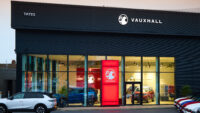More than 23 million people expect to be win compensation for mis-sold car finance a new survey has found, as Brits awaits a pivotal Supreme Court ruling that could release tens of billions in potential payouts.
A new poll by law firm Slater & Gordon found that 45% of people believe they could be entitled to a payout over a car finance agreement taken out between 2007 and 2021, totalling some 30 million packages for cars, vans and motorbikes.
In recent months, companies such a Close Brothers, Lloyds, Barclays and Santander have put £1.7bn aside to cover the claims, but credit rating firm Moodys has previously said the total bill could reach £30bn.
Slater & Gordon quizzed 4,000 people for the survey and found that confidence for payouts is high.
Some 40% said they would consider a legal challenge if their claim isn’t successful, with the survey revealing widespread distrust of banks and lenders to check records and hand out compensation.
Adverts from claims management firms across TV, radio and social media are buoying consumers’ expectations, while the survey’s findings could place further pressure on the Financial Conduct Authority (FCA).
Last month, the watchdog outlined the factors it will be using to consider implementing a formal redress scheme, and urged customers not to approach law firms.
A formal redress scheme would oblige lenders to compensate customers and skirt claims management companies.
According to The Times, Slater & Gordon has 200,000 customers interested in compensation and would back a redress scheme if the FCA introduced one, but urged the need for its to be carefully constructed.
Slater & Gordon CEO Elizabeth Comley said: ‘The public have very high expectations on the car finance scandal. They rightly expect to be compensated for their losses.
The FCA is trying to put things right but there’s a risk that a redress scheme leaves many people disappointed and keen to challenge the process. That sort of backlash would be bad for everyone — the scandal would drag on for years, the courts would be inundated with challenges and the public would be denied the clear resolution they want.’
































